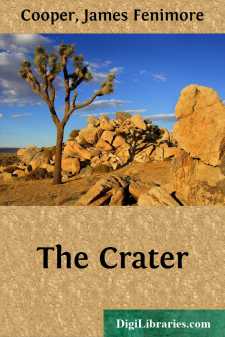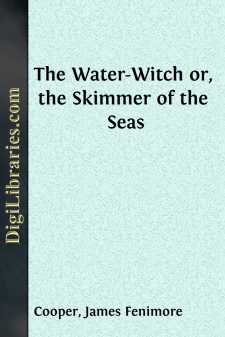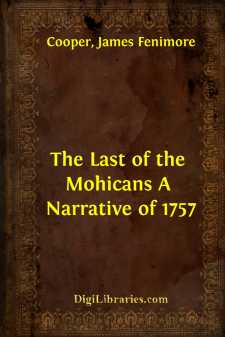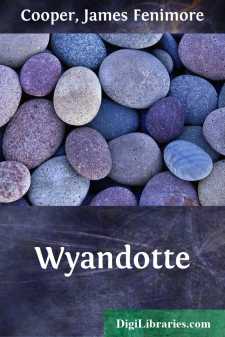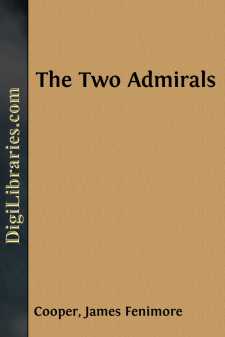Categories
- Antiques & Collectibles 13
- Architecture 36
- Art 48
- Bibles 22
- Biography & Autobiography 813
- Body, Mind & Spirit 142
- Business & Economics 28
- Children's Books 17
- Children's Fiction 14
- Computers 4
- Cooking 94
- Crafts & Hobbies 4
- Drama 346
- Education 46
- Family & Relationships 57
- Fiction 11829
- Games 19
- Gardening 17
- Health & Fitness 34
- History 1377
- House & Home 1
- Humor 147
- Juvenile Fiction 1873
- Juvenile Nonfiction 202
- Language Arts & Disciplines 88
- Law 16
- Literary Collections 686
- Literary Criticism 179
- Mathematics 13
- Medical 41
- Music 40
- Nature 179
- Non-Classifiable 1768
- Performing Arts 7
- Periodicals 1453
- Philosophy 64
- Photography 2
- Poetry 896
- Political Science 203
- Psychology 42
- Reference 154
- Religion 513
- Science 126
- Self-Help 84
- Social Science 81
- Sports & Recreation 34
- Study Aids 3
- Technology & Engineering 59
- Transportation 23
- Travel 463
- True Crime 29
The Crater
Description:
Excerpt
Chapter I.
"'Twas a commodity lay fretting by you;
'Twill bring you gain, or perish on the seas."
Taming of the Shrew.
There is nothing in which American Liberty, not always as much restrained as it might be, has manifested a more decided tendency to run riot, than in the use of names. As for Christian names, the Heathen Mythology, the Bible, Ancient History, and all the classics, have long since been exhausted, and the organ of invention has been at work with an exuberance of imagination that is really wonderful for such a matter-of-fact people. Whence all the strange sounds have been derived which have thus been pressed into the service of this human nomenclature, it would puzzle the most ingenious philologist to say. The days of the Kates, and Dollys, and Pattys, and Bettys, have passed away, and in their stead we hear of Lowinys, and Orchistrys, Philenys, Alminys, Cytherys, Sarahlettys, Amindys, Marindys, &c. &c. &c. All these last appellations terminate properly with an a, but this unfortunate vowel, when a final letter, being popularly pronounced like y, we have adapted our spelling to the sound, which produces a complete bathos to all these flights in taste.
The hero of this narrative was born fully sixty years since, and happily before the rage for modern appellations, though he just escaped being named after another system which we cannot say we altogether admire; that of using a family, for a christian name. This business of names is a sort of science in itself and we do believe that it is less understood and less attended to in this country than in almost all others. When a Spaniard writes his name as Juan de Castro y Muños, we know that his father belonged to the family of Castro and his mother to that of Muños. The French, and Italian, and Russian woman, &c., writes on her card Madame this or that, born so and so; all which tells the whole history of her individuality Many French women, in signing their names, prefix those of their own family to those of their husbands, a sensible and simple usage that we are glad to see is beginning to obtain among ourselves. The records on tomb-stones, too, might be made much more clear and useful than they now are, by stating distinctly who the party was, on both sides of the house, or by father and mother; and each married woman ought to be commemorated in some such fashion as this: "Here lies Jane Smith, wife of John Jones," &c., or, "Jane, daughter of Thomas Smith and wife of John Jones." We believe that, in some countries, a woman's name is not properly considered to be changed by marriage, but she becomes a Mrs. only in connection with the name of her husband. Thus Jane Smith becomes Mrs. John Jones, but not Mrs. Jane Jones. It is on this idea we suppose that our ancestors the English—every Englishman, as a matter of course, being every American's ancestor—thus it is, we suppose, therefore, that our ancestors, who pay so much more attention to such matters than we do ourselves, in their table of courtesy, call the wife of Lord John Russell, Lady John, and not Lady—whatever her Christian name may happen to be....


